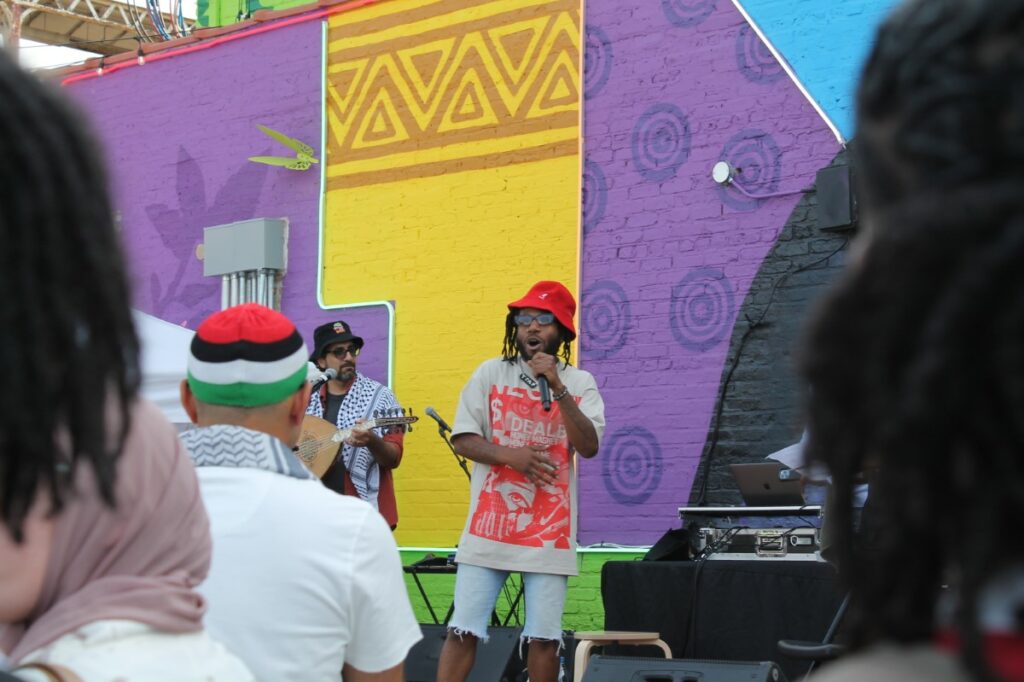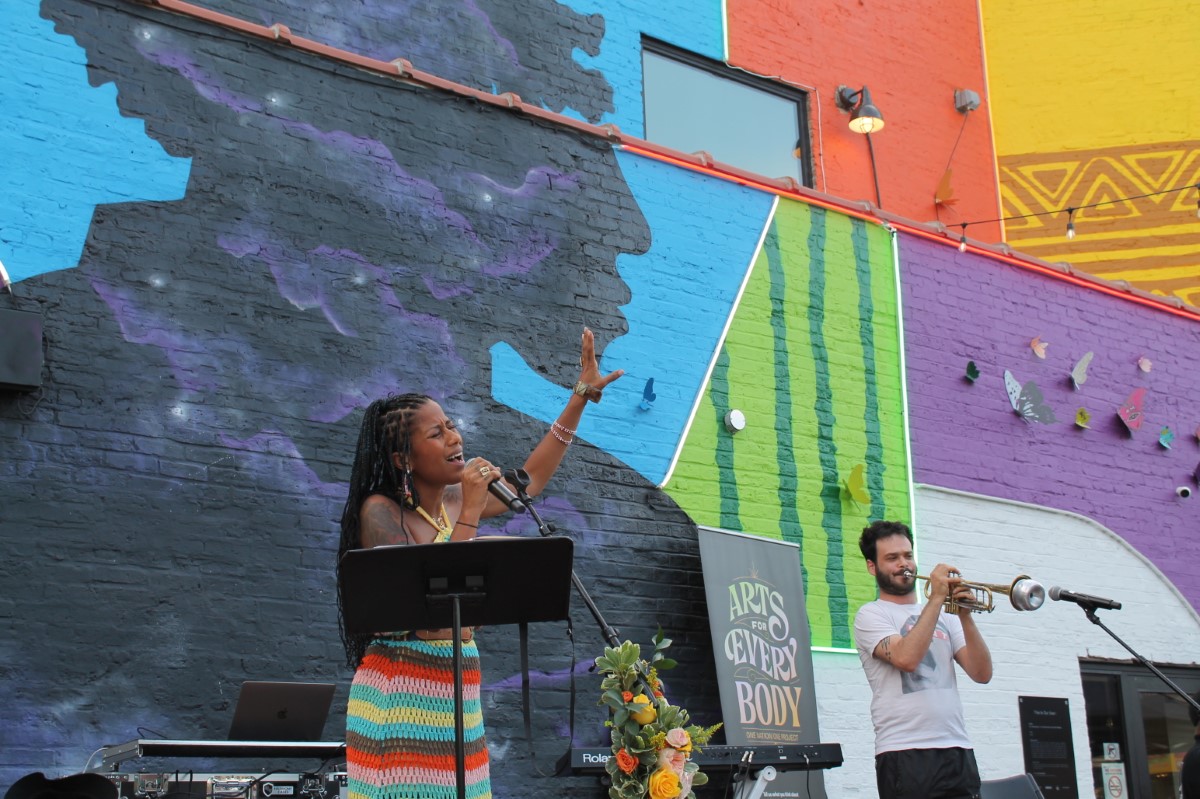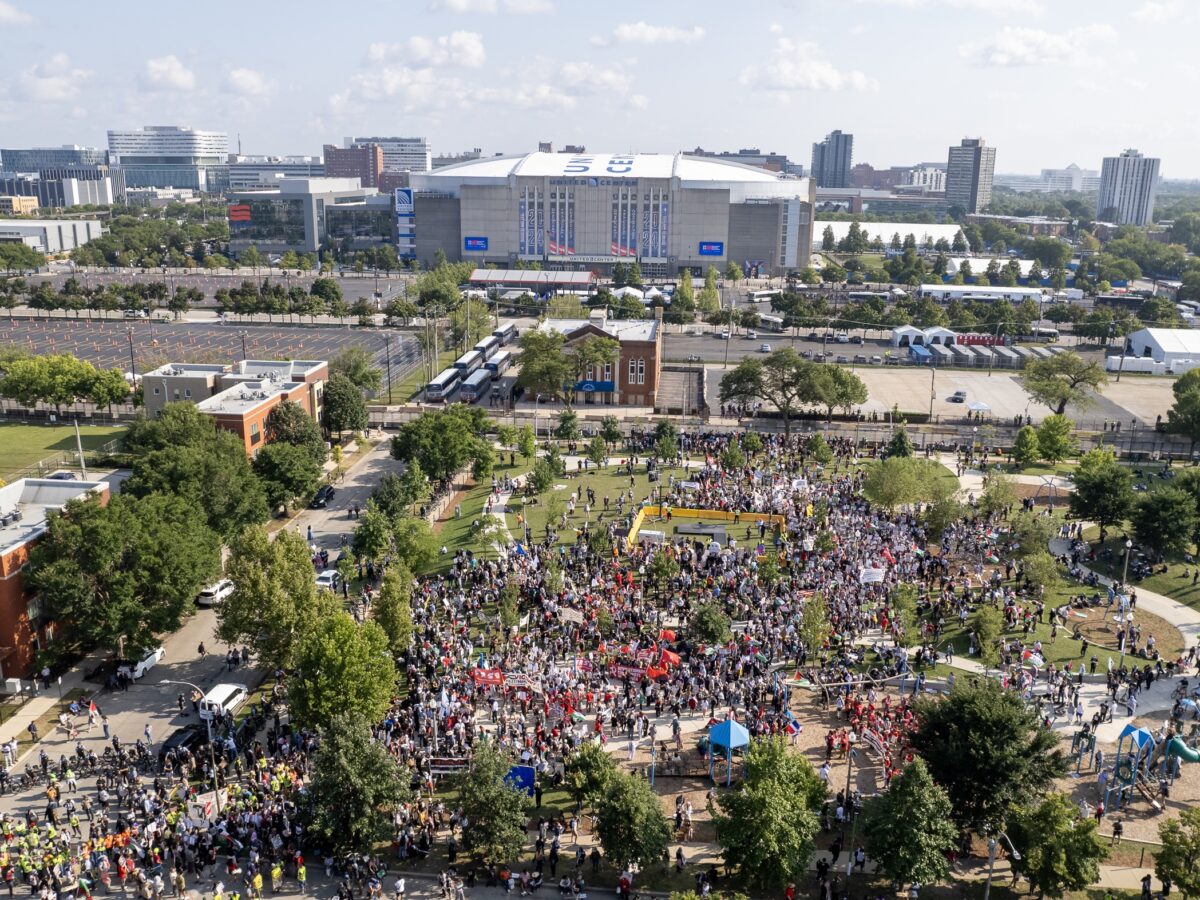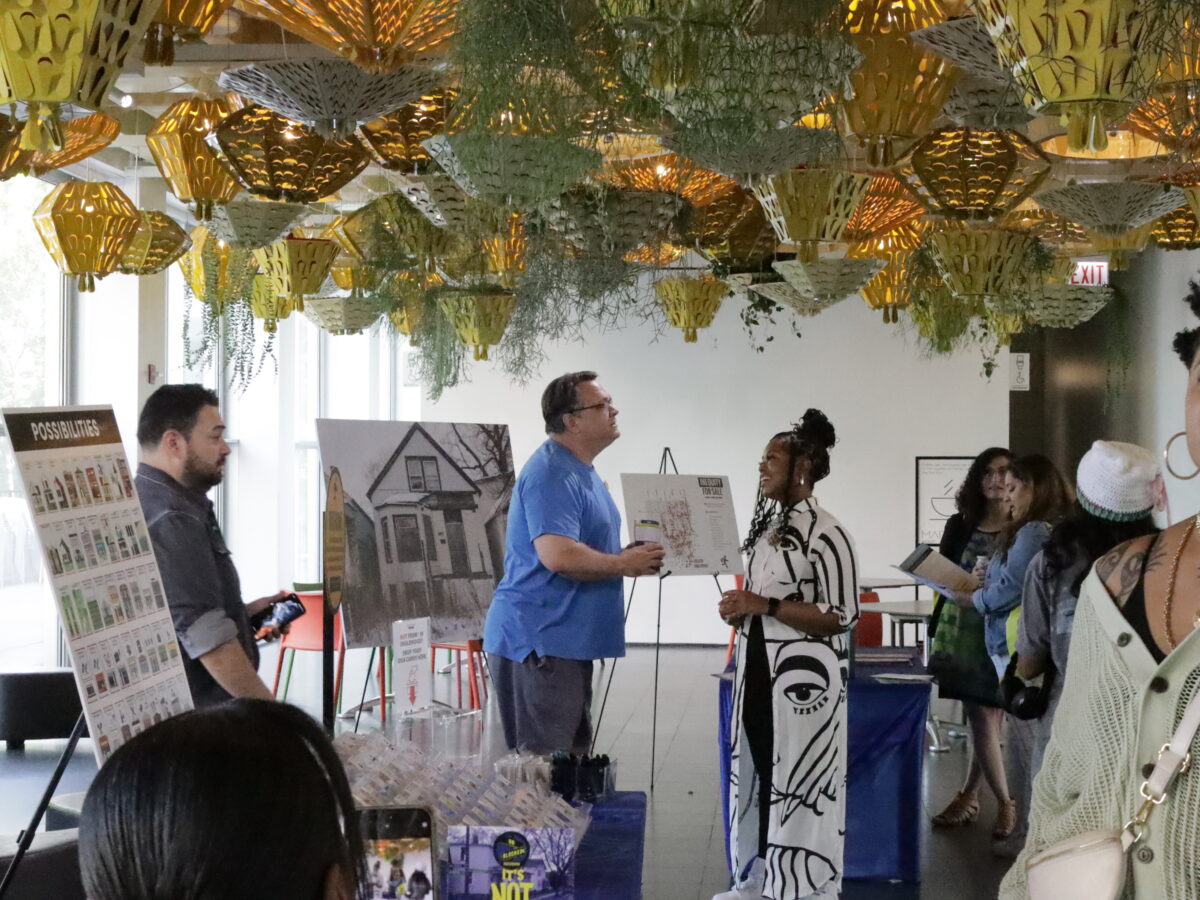As thousands from across the country visit Chicago for the Democratic National Convention (DNC), community organizations on the South and West Sides are using art to change the narrative about the city. Throughout the summer, Gertie, a civic and cultural agency expanding the impact of Chicago’s creative economy, awarded more than $400,000 in funding to community-based organizations for its latest initiative, Next Stop: Chicago. With support from foundations including Good Chaos, the Joyce Foundation and the Pritzker Traubert Foundation, Gertie provided grants ranging from $10,000-80,000 to various community partners who were selected to bring attention to “third spaces”—gathering spaces outside of work and home—on the South and West Sides of the city.
“Next Stop: Chicago is designed to highlight the important intersection of infrastructure and the arts through installations and programs that address resource allocation and infrastructure inequity—an issue that has disproportionately impacted Black and brown people in this city,” said Abby Pucker, Gertie’s founder and CEO.
Gertie amplifies the creative placemaking work happening in Chicago by investing in under-resourced creative businesses. Next Stop: Chicago showcases the ways in which the arts, alongside the beautification of and investment in infrastructure, can drive economic growth. While discourse about Chicago often focuses on the challenges the city faces, Gertie seeks to elevate community-led efforts to revitalize neighborhoods by drawing the attention of DNC guests from downtown to communities on the South and West Side.
“We have been constantly reimagining space, revitalizing space, and doing our best to give the community what it needs,” said Binta Diallo, Associate Director of Arts & Culture at Inner-City Muslim Action Network (IMAN), a community organization that fosters health, wellness and healing on the South Side of Chicago. IMAN is one of several organizations receiving Next Stop: Chicago funding.
IMAN’s Arts for EveryBody Mini-Festival, one of the series’ kickoff events, took place on July 27 at Go Green Griot Plaza, a new community hub in Englewood. The festival highlighted the importance of storytelling and expression, featuring stunning performances by renowned artists including Grammy-nominated poet aja monet, Grammy-nominated musician John Forte, Englewood native Heavy Crownz, and hip-hop artist Omar Offendum. Celebrated rapper (and The Chi actor) Vic Mensa not only graced the stage, but vowed to continue supporting Next Stop: Chicago’s initiatives by hosting a series of short videos on the project leading up to the DNC.

The plaza, an outdoor space for community art developed on a previously abandoned lot at the corner of 63rd St. and S. Racine Ave., adjoins the former Racine Green Line station, where trains zoomed past throughout the festival. In 1994, the city closed the train stop in what was supposed to be a temporary closure for repairs. For nearly three decades, residents and organizations, including IMAN, have advocated for reopening the stop, which remains shuttered today. The juxtaposition of the vibrant plaza against the train stop is symbolic of the disinvestment IMAN is actively fighting against.
A mural containing the phrase “This is Our Story,” served as the bright backdrop for the day’s festivities. The art piece, created by Eric Hotchkiss and Ash Busse, commemorates the legacy of griots, West African storytellers revered for preserving their communities oral traditions. Three-dimensional butterflies featured on the mural include the written reflections of elders who shared parts of their story as longstanding members of the Englewood community. To commemorate the recreational spaces of Englewood’s past, Hotchkiss featured lights near the mural in remembrance of a community skating rink from generations past.
This Heavenly Body, a new exhibition funded by Next Stop: Chicago and on display at Blanc Gallery in Bronzeville, also honors roller rinks as important spaces for community connection. The exhibitions’ co-curators Nnaemeka Ekwelum and Alexandria Eregbu met in 2020 as participants in one of Blanc gallery’s inaugural artist residencies and are the co-founders of AfroDisco Social Hour, a collective bridging Chicago’s Black diaspora together through cultural experiences. These authentic connections with the gallery space and each other eventually led to the curation and development of This Heavenly Body.
Featured artist Seed Lynn’s dynamic photographs document the role roller skating rinks play in Black communities and serve as a political response to the nationwide closures of roller-skating rinks, bowling alleys, amusement parks, and other social spaces that promote and facilitate Black gathering and community building. The non-traditional layout of the gallery space, mirroring the circular orbit of a rollerskating rink, creates a unique constellation of connections between the objects and the viewer. An array of colorful photographs featuring Black people skating under neon lights with their children, lovers and friends encapsulates the joyful respite these recreational spaces offer.
“[Skating] triggers memories of childhood and nostalgia,” said Ekwelum. “I love when adults find ways to play and just be within their bodies with each other, especially Black people being able to experience and embody freedom through these activities. It might not be our consistent experience every day in the world, but there are spaces of refuge where we can come and practice how to fly, how to glide.”
Ekwelum, a PhD candidate in Black studies at Northwestern University, contextualizes the importance of the exhibition in the history of segregation that often kept Black people out of “third spaces” like swimming pools, amusement parks, and dance halls. Spaces like roller rinks cultivated Black traditions and culture as a form or resistance and innovation in the face of discrimination. This Heavenly Body’s closing activation will include a temporary roller skating rink behind Blanc Gallery for guests to reclaim this endangered tradition.
“The work that we’re doing around this project is really important because it is speaking to something that kept Black people together, [where] we can come together safely and express and share our values,” said Eregbu.
Gertie hopes initiatives like these will create a kind of “critical mass” that shows organizations across the South and West Sides are strategically building regenerative community spaces where they’ve been lost or taken away. With the world’s eyes on Chicago this week, Next Stop: Chicago turns the collective’s gaze to the creative talent and innovation that extends far beyond the Loop.
Upcoming community activations include Arts and Public Life’s “Homecoming” activation (August 20-21) on the newly constructed Arts Lawn (337 E. Garfield Blvd.), Grow Greater Englewood & Englewood Arts Collective’s Black Abundance Dinner (August 22), SkyART – For Freedoms’ Heart & Craft on Lake community arts festival (August 21), Urban Juncture Initiative’s A Celebration of Bronzeville Culture event (August 21), Blanc Gallery & AfroDisco Social Hour’s exhibition closing party and rollerskating activation (August 24) and the permanent Wabash Lights installation located under the Washington/Wabash train station. Learn more here.
Jasmine is a writer, facilitator and community builder living in Woodlawn. You can learn more about her work at www.jasbarnes.com.




